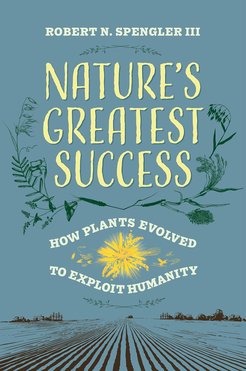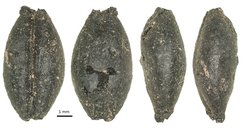Upcoming Book Nature’s Greatest Success Presents New Paradigm of Domestication
A new book by Dr. Robert Spengler tackles one of the biggest questions in biology and the social sciences: domestication – what it is, how it occurred, and the role that humans really played in developing the first crops and livestock.

For nearly two centuries, scholars have sought to understand how humans first began to domesticate plants and animals. In Nature’s Greatest Success: How Plants Evolved to Exploit Humanity, Robert Spengler argues that domestication began not as a conscious human endeavor, but an emergent evolutionary process shaped by the removal of ecological pressures by human activity.
Drawing on two decades of research and fieldwork across Asia, Spengler, archaeobotanist and leader of the Domestication and Anthropogenic Evolution research group at the Max Planck Institute of Geoanthropology, shows that the domestication of plants and animals unfolded over millennia as species adapted to conditions around early villages and settlements. Human activity turned these areas into ‘habitat islands,’ with evolutionary pressures that functioned the same as the ecological pressures on oceanic islands, thereby influencing the evolution of the affected species.
In Nature’s Greatest Success, Spengler shows how the traits long identified as hallmarks of domestication—such as increased seed size, changes in coloration, reduced aggression, and loss of natural defense behaviors—are also common among isolated species on oceanic islands. He argues that this is no coincidence, presenting the Ecological Release Hypothesis as the mechanism, in which he states that domestication in prehistory was largely the result of humans keeping plants and animals confined close to their villages and away from predators and herbivores.

The implications are far-reaching. Domestication and the dawn of agriculture have long been seen as turning points in the human story. But if humans entered the process unintentionally, as Nature’s Greatest Success argues, then our role is not that of nature’s designer or master, but of a participant in an ongoing evolutionary narrative.
What’s more, domestication is continuing to unfold all around us today. The unintended consequences of human activity are increasing, Spengler argues, such that all life on Earth is on a trajectory towards domestication.
“Understanding how domestication unfolded in the past directly speaks to conservation initiatives today, in that humans are rapidly driving the evolution of organisms all over the globe,” says Spengler. “The only way to understand the long-term impacts of anthropogenic evolution is through archaeological studies.”
Nature’s Greatest Success: How Plants Evolved to Exploit Humanity from University of California Press is available wherever books are sold on 6 May 2025. For more information on Spengler’s research, conferences, and other books, visit https://www.spenglerlab.com













